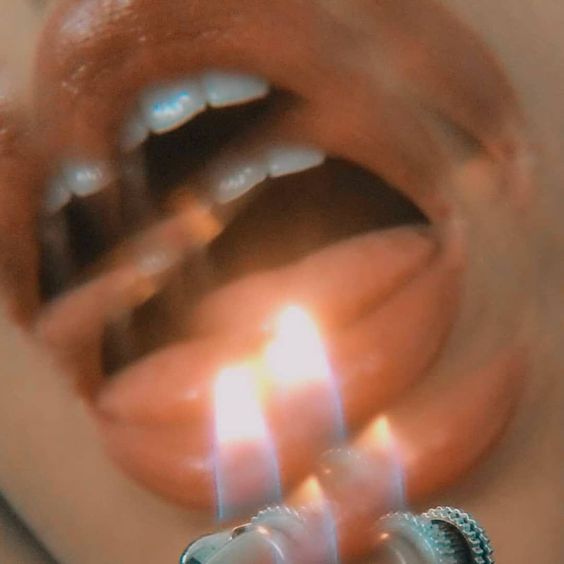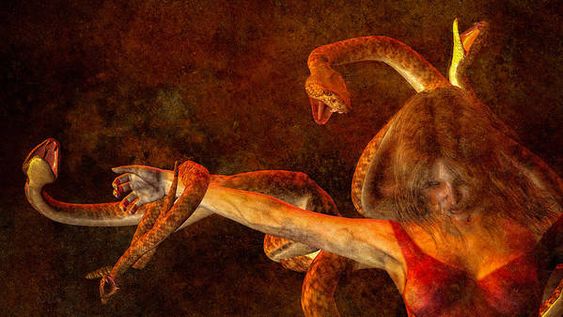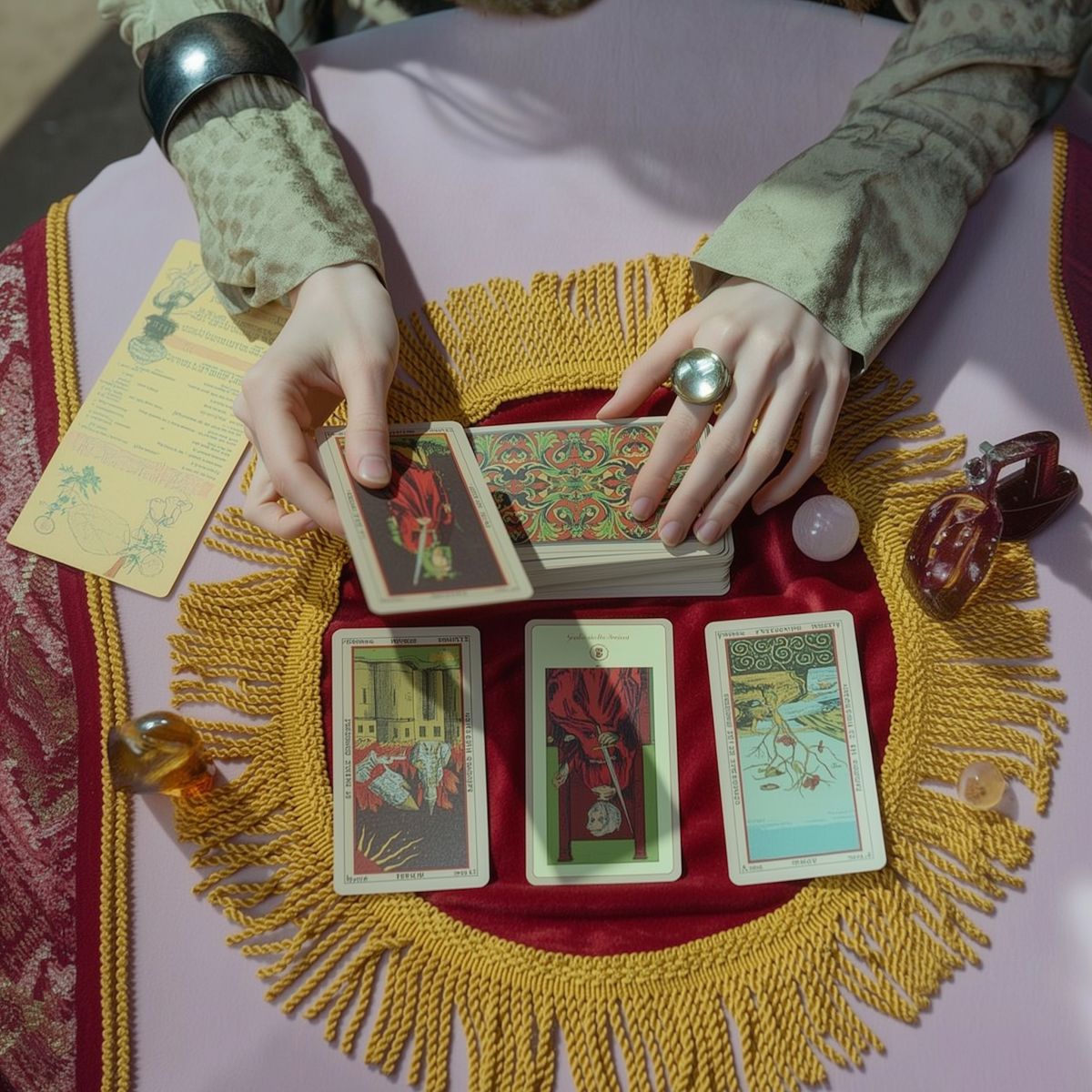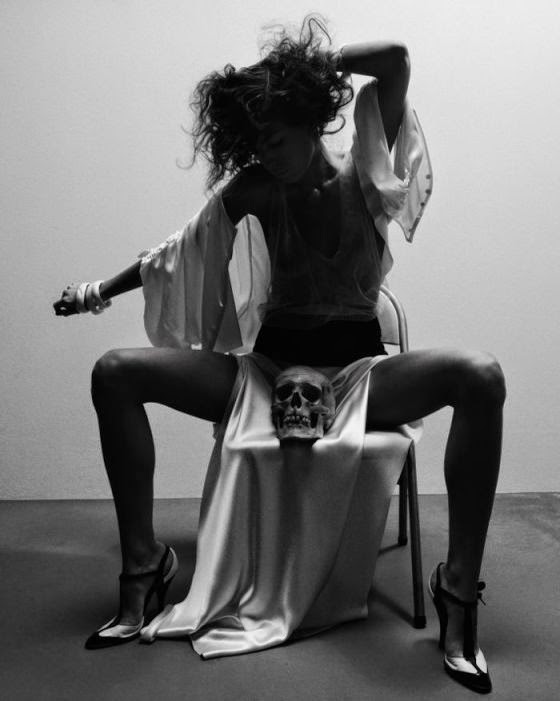
Mars in the 12th House: The Art of Repressed Rage
 For those with Mars in the 12th house, their energy is confined to the watery, dreamlike realm of the unconscious. People with this placement often emerge from childhood with a sense that their will, their drive, was somehow dangerous, unpalatable, or even shameful. So what do they do? They tuck it away. Bury it. Smother it in denial. But Mars doesn’t drown quietly. It simmers, it seethes, and occasionally—when the subconscious can’t take it anymore—it erupts. Sometimes in a burst of passive-aggression, sometimes in a chaotic blow-up that seems to come from nowhere. This makes assertiveness a complex, almost ghostly pursuit. You want to stand up for yourself, but it’s like your legs disappear when you try. You want to say “no,” but your mouth produces a polite “sure” instead. And anger? It’s a fire you try to hide so well that it only comes out in dreams, internal issues, or the occasional volcanic emotional outburst that leaves you wondering, “Who was that person?”
For those with Mars in the 12th house, their energy is confined to the watery, dreamlike realm of the unconscious. People with this placement often emerge from childhood with a sense that their will, their drive, was somehow dangerous, unpalatable, or even shameful. So what do they do? They tuck it away. Bury it. Smother it in denial. But Mars doesn’t drown quietly. It simmers, it seethes, and occasionally—when the subconscious can’t take it anymore—it erupts. Sometimes in a burst of passive-aggression, sometimes in a chaotic blow-up that seems to come from nowhere. This makes assertiveness a complex, almost ghostly pursuit. You want to stand up for yourself, but it’s like your legs disappear when you try. You want to say “no,” but your mouth produces a polite “sure” instead. And anger? It’s a fire you try to hide so well that it only comes out in dreams, internal issues, or the occasional volcanic emotional outburst that leaves you wondering, “Who was that person?”
This isn’t a textbook issue of “difficulty expressing anger.” This is a spiritual odyssey wrapped in the guise of repression. Mars is the primal force that makes a baby cry to be fed, a teenager slam a door, or a rebel march through the streets with defiant fists raised. But when Mars is tucked away in the 12th, it forgets that it is even angry at all. Or so it thinks. But anger is never truly silent. It becomes smoke when it cannot be fire. It infiltrates your unconscious, your health, your sense of self. It turns inward, where it festers and twists until you’re not even sure if what you’re feeling is anger or just a vague fog of sadness, frustration, or self-doubt. It disguises itself as martyrdom, as “I’m fine” uttered through gritted teeth. And the world loves a compliant soul. It praises you for being so accommodating, so understanding, so selfless. All the while, Mars paces restlessly inside, pounding its fists on the walls you built to keep it hidden.
What makes this placement so painful and powerful is that it requires you to do the one thing most people avoid their whole lives: to look into your own unconscious, to see the darker undercurrents. To admit that your anger is valid. Your needs matter. Your desires, your lusts, your selfish cravings—even the ones that make you blush or flinch—are not wrong. They are part of of your being. You may find that the world has taught you to fear your own intensity. Perhaps you were made to feel that taking up space, saying what you want, demanding your due, was somehow rude or dangerous. So you learned to be nice, to be quiet, to keep the peace—even if it cost you your voice. But repression is never resolution. You cannot heal by hiding. The task before you, then, is nothing less than reclamation. It is the work of calling your Mars back from exile.
You must become curious about your anger rather than ashamed of it. Sit with it as you would an old friend who’s been misunderstood for far too long. Let it speak. Let it howl if it must. And as it howls, you’ll begin to remember who you are beneath the spiritual bypassing, beneath the veil. It is a dance in the dark. But what you will find, as you begin to move, is that the very thing you feared—your power, your passion, your ability to fight—isn’t a monster at all. It is your protector. It is the part of you that knows how to say no, how to draw a line, how to walk away, how to burn bridges when necessary. To honor Mars in the 12th is to learn the art of conscious anger, selfishness, and revolution.
The Shadowy Alcoves of the Unconscious
Confrontation, for these individuals, isn’t just uncomfortable; it feels like betrayal. A betrayal of peace, of harmony, of the silent rules they’ve internalized that say: “You mustn’t cause a scene. You mustn’t make people uncomfortable. You mustn’t put yourself first.” So when anger arises—as it does, inevitably, in the realm of human life—it isn’t dealt with in the moment. It’s swallowed. Packed away. Filed under “not now” or “not worth it.”
But anger doesn’t respect filing systems. It festers. It waits. It smolders like a coal under a carpet. And then one day, it surges—sudden, unexpected, irrational even—because the thing that tipped the scales wasn’t that bad, not on its own. Someone left a wet towel on the bed, and you’re screaming. A colleague makes a smug comment, and you’re in tears. The dog knocks over a cup, and you’re shaking with fury. And you wonder, “What’s wrong with me? Why did that hit so hard?” But it wasn’t the towel, or the colleague, or the dog. It was the avalanche of unspoken moments, the years of quiet capitulations, of smiling when you wanted to scream.
There’s confusion here too. Because the 12th house doesn’t just hide anger from the world—it hides it from you. You might not even realize you’re angry until your body tells you. Until your stomach clenches. Until you get headaches. Until you can’t sleep. Until you’re fantasizing about arguments you never actually have. The subconscious becomes a warzone while the conscious self plays the diplomat, clueless to the internal carnage.
This doesn’t mean you’re doomed to be a ticking time bomb, mind you. Far from it. What it means is that your relationship with anger must become conscious. It must be retrieved from the depths and treated not as a threat, but as a signal. Anger is, after all, points to what matters. It shows you where your boundaries are. It says, “Here! Right here is where you’ve been compromising too much. Right here is where your voice is being silenced.”
A Hidden Anger
Mars in the 12th house expresses rage through omission and subtext. The anger is there, but it rarely steps into the conscious realm. Instead, it plays out in moods. For those with this placement, anger was often punished or pathologized early on. Perhaps they grew up in homes where anger was frightening—where it shattered the peace or came with withdrawal, coldness, emotional exile. Or perhaps the anger wasn’t overt at all—it was subtle, manipulative, guilt-laced. And so the child learns: if you get angry, people leave. Or worse, they punish. So the child adapts. Anger doesn’t disappear, it just morphs. It becomes sarcasm, withdrawal, the cold shoulder. It becomes avoiding eye contact instead of raising your voice. It becomes doing what’s asked, but badly—because you’re seething but cannot say why.
This is a sort of psychic self-defense. Rather than confront, you deflect. Rather than erupt, you disperse. But the cost is high. These indirect expressions of frustration often lead to confusion—not only for others, but for the person experiencing them. You might find yourself irritated with someone who did nothing wrong, or passive-aggressively jabbing at someone who merely touched a nerve that was already raw from something entirely unrelated.
And here’s the heartbreak of it: because your anger doesn’t come out clearly, it often isn’t taken seriously. People don’t know you’re upset until it’s too late. They may label you moody, dramatic, oversensitive, or “just quiet today.” But underneath, your inner Mars is flailing about, desperate to assert itself, to be heard. You may not even know what you’re angry about half the time. It’s been buried so long, tangled in memory, myth, and unconscious conditioning.
And so what happens? Innocent bystanders get the shrapnel. You snap at your partner when really you’re furious with your boss. You pick fights over dinner when what you truly want is acknowledgement, space, respect. This misdirection isn’t a moral failing—it’s a sign of emotional displacement, a strategy born of necessity. But like any outdated survival tactic, it must eventually be laid to rest. The task here is to learn to recognize your own emotional weather system before the storm hits. To trace your anger back to its source. You don’t shame it, nor try to suppress it—but attempt to understand it. To name it. To make it conscious. Only then can it be expressed in ways that are clear, clean, and constructive—not left to leak out sideways and soak the innocent.
The Tragicomedy
The great tragicomedy of Mars in the 12th house is where the god of war slips through the cracks of consciousness and wages his battle in dreamscapes, dark corners, and interpersonal spaces. Over time, the repressed becomes projected, and what we cannot admit to ourselves becomes a drama enacted by the world around us. Unresolved anger doesn’t simply lie dormant—it finds ways to express itself, often indirectly and unconsciously. For the 12th house Mars individual, this often means externalizing what they dare not internalize. They may attract difficult people or find themselves in scenarios where power is imbalanced—where they are the one passed over, talked down to, taken for granted. These experiences are not random misfortunes; they are psychic mirrors, reflecting the rage that has no home within, no name, no safe place to be expressed.
A pattern emerges—subtle but persistent. The individual becomes familiar with the role of the underdog, the overlooked, the quietly wronged. Victimhood, though never consciously chosen, begins to feel like a second skin. This isn’t a craving for sympathy but a subconscious reenactment of unresolved wounds. Because if your anger isn’t allowed to be yours, if it’s too frightening, too dangerous, too shameful—then it will live outside of you, dressed as bosses who disrespect you, friends who take advantage, lovers who never quite see you.
But here’s the strange grace of it all: the world is trying to show you what lives inside. Each unfair encounter is a messenger. Each betrayal, a flare from your own unconscious. “Look,” it says. “Here is your power. Here is your fire. You’ve hidden it so well, you forgot it was yours. But now it’s come back, dressed as someone else.” And when you begin to see this, not through the lens of blame, but with the clarity of awareness, something astonishing begins to happen. The pattern breaks. You stop attracting antagonists, because you’ve stopped needing them to show you your rage. You stop feeling like the world is conspiring against you, because you’ve made peace with the parts of yourself that were once exiled.
This doesn’t mean you become aggressive. It means you become honest. It means you start to recognize the moment your needs are being dismissed, rather than six months later in therapy, but in the moment. It means you learn to say “this isn’t okay” before resentment calcifies. You begin to inhabit your anger as a teacher. Mars in the 12th is about spiritualizing the warrior. You are not fated to be the victim.
Mars in the 12th house, cloaked and often uninvited, emerges in dreams like a beast pacing in the dark, or a hero running endlessly toward a battle he cannot see. The unacknowledged rage, denied its conscious expression, doesn’t simply dissipate. It mutates. It morphs into odd compulsions, irrational fears, and surreal, often violent dreamscapes. You may wake from sleep shaken, breathless, unsure why you just dreamt of apocalyptic fights or silent screams. But these nocturnal dramas are messages from the soul, coded signals from the inner Mars, saying, “I am still here.”
You see, when Mars is not allowed to express itself above the surface, it doesn’t sit quietly in a corner. It tunnels inward, carving out strange caverns within the psyche. This repressed energy often becomes a sort of psychological pressure cooker—fuel for intrusive thoughts, dark imaginings, or sudden waves of emotion that seem to have no origin. The individual may feel haunted by passions they cannot explain, or haunted by the lack thereof—numbness where fire should be. And herein lies the paradox: the war god is both too loud and too quiet, too absent and too present. A ghost with a sword, wandering the corridors of the unconscious.
Yet, as always with the 12th house, this suffering is not without its deeper meaning. For those brave enough to confront these shadows—to feel them fully, to understand rather than suppress them—there lies a profound transformation. The anger that once erupted in confusion or cowered in shame can become the fuel for something extraordinary. And here, beautifully, we arrive at one of the highest potentials of this placement: the redirected rage. Once this energy is understood, it can be harnessed as advocacy, and as service. Mars in the 12th has a natural empathy for the unseen, the forgotten, the suffering. Perhaps because it knows what it feels like to be invisible. To scream and not be heard. To burn with injustice that no one else seems to notice.
So the anger begins to find a home in action. The person may become a fierce defender of the downtrodden. They may gravitate toward humanitarian causes, spiritual activism, prison reform, animal welfare, addiction recovery—places where pain is hidden, and justice feels far away. They may not fight for themselves easily, but they will fight for others with the kind of passion that only comes from having felt it—deeply, silently, in their own hidden battles.
This is Mars transfigured. The individual begins to reclaim their own worth, too. They realize that by helping others be seen, they are learning to see themselves. By fighting for justice, they are indirectly healing the injustices they endured within. Their empathy becomes a gift, a sword of light cutting through collective darkness. The dreams may still come. The inner conflicts may still stir. But now, they are reminders of depth, of purpose, of a fire that, when channeled rightly, can warm the world.

















 Pluto in the 12th House
Pluto in the 12th House
 Sun Square Pluto Synastry: You’ve Got That Power Over Me
Sun Square Pluto Synastry: You’ve Got That Power Over Me
 Composite Sun in Houses: Part 1
Composite Sun in Houses: Part 1
 Venus-Pluto Synastry: A Love So Powerful That It Might Just Kill Them
Venus-Pluto Synastry: A Love So Powerful That It Might Just Kill Them
 Pluto in the 3rd House: Brutal Honesty
Pluto in the 3rd House: Brutal Honesty
 Scorpio: Sex and Revenge – You’ll Get What’s Coming To You
Scorpio: Sex and Revenge – You’ll Get What’s Coming To You
 Venus Trine Pluto: Dark Desires
Venus Trine Pluto: Dark Desires
 Scorpio: The Death Wish
Scorpio: The Death Wish
 The Differences Between Synastry and Composite Charts!
The Differences Between Synastry and Composite Charts!
 Pluto in the 11th House
Pluto in the 11th House
 Mars-Pluto Synastry: Something Quite Dark and Dangerous
Mars-Pluto Synastry: Something Quite Dark and Dangerous
 T-Squares
T-Squares
 Scorpio’s Jealousy
Scorpio’s Jealousy
 Scorpio, 8th House and Pluto – Black Magic & Family Curses
Scorpio, 8th House and Pluto – Black Magic & Family Curses
 Moon Conjunct Pluto Synastry
Moon Conjunct Pluto Synastry
 Mars Conjunct Pluto Synastry
Mars Conjunct Pluto Synastry
 Mars-Saturn Synastry: The Eternal Loop
Mars-Saturn Synastry: The Eternal Loop
 Mercury Conjunct Venus Synastry
Mercury Conjunct Venus Synastry
 Neptune in the 7th House: A Tidal Wave of Fantasies in Relationships
Neptune in the 7th House: A Tidal Wave of Fantasies in Relationships
 Understanding Saturn’s Cycles: From Childhood to Adolescence and Adulthood
Understanding Saturn’s Cycles: From Childhood to Adolescence and Adulthood